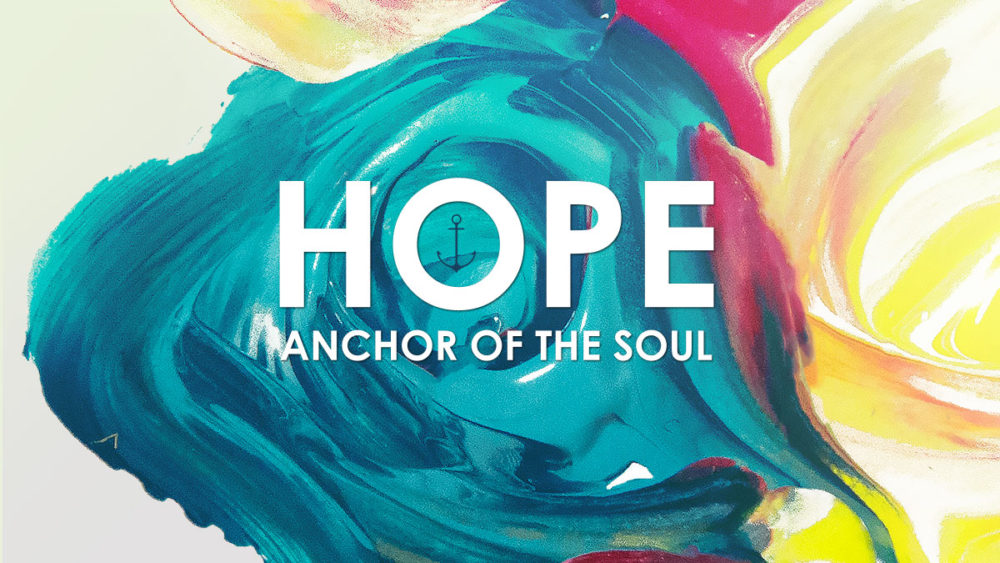Introduction
This sermon is focused on the hope mentioned in the second “let us” statement of Hebrews 10. This “let us” statement is an important response to the first ten chapters of the book. Hope is a key theme in Hebrews that cannot be overshadowed by faith. One could even argue that what the Hebrews needed more than faith was proper hope in the work and person of Jesus so that their faith would be steadfast. Hope and faith are inseparable, yet distinct. This sermon will look at how the author of Hebrews builds up hope in Christ alone, and then brings hope and faith together in the famous Hebrews 11 faith chapter. Understanding the significance of hope in the life of a believer is essential, as it is one of the three things that abide: faith, hope and love.
Key points from this sermon:
- Believer’s hope is unique to Christians. It cannot be learned or received outside of being reborn into the house of Christ.
- Hope is for us, from God, and towards God. God wants us to have hope. Hope must not be seen as a weak trait.
- Our hope in the promise maker sustains our faith in the promises.
- Faith – God’s word is true and I will act on it
Hope – God is faithful to his word so I can be bold, encouraged, steadfast and comforted.
[Heb 10:19-25 KJV] 19 Having therefore, brethren, boldness to enter into the holiest by the blood of Jesus, 20 By a new and living way, which he hath consecrated for us, through the veil, that is to say, his flesh; 21 And [having] an high priest over the house of God; 22 Let us draw near with a true heart in full assurance of faith, having our hearts sprinkled from an evil conscience, and our bodies washed with pure water. 23 Let us hold fast the profession of [our] faith without wavering; (for he [is] faithful that promised;) 24 And let us consider one another to provoke unto love and to good works: 25 Not forsaking the assembling of ourselves together, as the manner of some [is]; but exhorting [one another]: and so much the more, as ye see the day approaching.
The author of Hebrews spends the first 10½ chapters describing the superiority of and totality of sustenance found in Jesus.
God created the world through the Son. The Son is better than angels. To the Son the Father says, “Your throne oh God, is forever and ever, a scepter of righteousness”. Jesus is superior to angels, to Moses, to Aaron, to Joshua, the Levitical Priesthood, to the O.T sacrifices. This Son became the mediator of a new and better covenant through his living sacrifice that allows sinners’ access to God. Basically, who Jesus is, what he said, and what he did is superior in every way and to everyone mentioned in the Old Testament.
In chapter 10 the text then turns to the reader’s desired application put into the form of three “let us” statements. Because we have boldness to enter into the holiest by the blood of Jesus, and because we have a faithful high priest of a better covenant that has vanquished the penalty of sin once and for all, let us draw near with a true heart and faithful assurance, let us hold fast the profession of our hope without wavering, and let us consider one another so we can provoke each other to love and good works.
We see faith (vs 22), hope (vs 23), and love (vs 24) as the duty to those who are in Christ. This should remind one of 1 Corinthians 13 (now abides faith, hope and love…)
[Heb 10:23 KJV] 23 Let us hold fast the profession of [our] faith (hope) without wavering; (for he [is] faithful that promised;)
The word translated here as “faith” means “hope” in the Greek. It is translated as “hope” 53 times in the KJV, and as “faith” only once, in this passage.
????? (elpis), ???? (idos), ? (h?): n.fem.; 1. LN 25.59 hope, a looking forward to in confident expectation (Ac 23:6); 2. LN 25.61 what is hoped for (Ro 8:24; Col 1:5); 3. LN 25.62 basis for hope, that which is the cause or reason for hoping (1Th 2:19)[1]
????? ?lpis, el-pece´; from a prim. ???? ?lp? (to anticipate, usually with pleasure); expectation (abstr. or concr.) or confidence:[2]
Most of us know the wonderful scriptures that speak of being saved by faith, and how our faith is pleasing to God, and through faith (in the work and person of Christ) we can overcome anything in this life. Hope is inseparable from faith, but distinct. As previously stated, it is part of the triune abiding traits of believers.
[1Co 13:12-13 KJV] 12 For now we see through a glass, darkly; but then face to face: now I know in part; but then shall I know even as also I am known. 13 And now abideth faith, hope, charity (love), these three; but the greatest of these [is] charity.
Faith and love are often magnified for their importance (and they should be). Faith and love—while both internal and generated from a renewed heart and mind—manifest themselves in word and deed. They are in a sense, the “what” of the Christian walk in that they are seen. They are signs of true believers (James 2:18, John 13:35). Hope is unseen. Hope is the “why” of the Christian walk. Embracing Biblical hope will make it easier to love and easier to have faith, particularly when things get difficult. The above scripture mentions that we currently can’t even see properly (note the use of “now” in both verse 12 and 13). We don’t see the full picture as God sees it, but this is not a handicap nor excuse not to follow after Christ, for faith, hope and love now abide. And when one can’t see, what is more important than hope, whose Biblical definition implies earnestly expecting what we can’t see?
Rom 8:24b …hope that is seen is not hope: for what a man seeth, why doth he yet hope for?
Have you ever had head knowledge of the necessity of hope, but felt the hope that actually moves and comforts you seems elusive? Perhaps you can think of a recent season where the hope in Christ was so thick in your life that your confidence and steadfastness were sky-high. Maybe you’d like to be back in that place but it doesn’t seem to be as easy as flipping a switch.
We can try to imagine ourselves in the Hebrews’ place. There is doubt in the church, there is immaturity (taking the form of not moving on from milk to meat), and there is probably even fear or despair in leaving the Law for Christ. While the first 10 chapters of Hebrews may just seem like an intellectual argument to prove the person and work of Christ, the writer is doing so much more. What the letter does is systematically present the glorious hope found only and completely in Jesus Christ. If the Hebrews truly understood the better salvation offering found in Christ, they would not be tempted to turn back to justification by the works of the law. Hebrews is not only a head appeal, it is a heart appeal.
The writer presents hope as on ongoing theme. A special message resides in Hebrews for all believers, Jewish and non. There is a supernatural hope found in Christ that should be aroused when the believer begins to doubt, becomes complacent, or fall back upon her own efforts.
Hebrews 3:5-6 – Hope & Rejoicing
[Heb 3:5-6 KJV] 5 And Moses verily [was] faithful in all his house, as a servant, for a testimony of those things which were to be spoken after; 6 But Christ as a son over his own house; whose house are we, if we hold fast the confidence and the rejoicing of the hope firm unto the end.
Hope indeed, but also the “rejoicing”(!) of the hope. Here the Christian hope is shown as one the believer rejoices in. SLIDE Believer’s hope is unique to Christians. It cannot be learned or received outside of being reborn into the house of Christ. Therefore a spirit of rejoicing can be aroused within us at anytime to give us strength. The joy of the Lord is your strength –Neh 8:10. Joy is a special characteristic of the Kingdom of God – Rom 14:17.
Hebrews 6:17-19 – An Anchor of the Soul
[Heb 6:17-19 KJV] 17 Wherein God, willing more abundantly to shew unto the heirs of promise the immutability of his counsel, confirmed [it] by an oath: 18 That by two immutable things, in which [it was] impossible for God to lie, we might have a strong consolation, who have fled for refuge to lay hold upon the hope set before us: 19 Which [hope] we have as an anchor of the soul, both sure and stedfast, and which entereth into that within the veil;
God’s word is unquestionable. It is always right, it is always holy, and it is always trustworthy; his word is more than enough. Yet here we see God not only making a promise, but also taking an oath (two immutable things)! This God who cannot lie has no need to vow or promise anything to prove his character, especially to us. Why would the God of the universe God make a promise and take an oath towards humankind? Because he desired to show us the immutability of his counsel that we might have strong consolation and lay hold of the hope set before us! In other words, God wanted us to have assurance that we would never change his mind in order that we may lay hold of the blessed hope and keep it without wavering. This hope is “sure” and “steadfast”. This hope drives us into what lies within the veil, the Holy of Holies, into Christ himself.
This scripture passage is wonderfully encouraging and each word worth studying. Here is a simplified version I believe accurately represents the intent of the author and might make it a little easier to understand the broader concepts.
[Heb 6:17-19 NLT] 17 God also bound himself with an oath, so that those who received the promise could be perfectly sure that he would never change his mind. 18 So God has given both his promise and his oath. These two things are unchangeable because it is impossible for God to lie. Therefore, we who have fled to him for refuge can have great confidence as we hold to the hope that lies before us. 19 This hope is a strong and trustworthy anchor for our souls. It leads us through the curtain into God’s inner sanctuary.
We’re not even covering all the references to “hope” in Hebrews, but its significance can already be seen. Read the above scripture again. God wants us to have hope! Yes God allows us to be tested, chastised and persecuted, but these are all meant to occur within the blessed hope that is unique to Christians.
[SLIDE] This hope is for us, from God, and towards God.
[Heb 7:19 KJV] 19 For the law made nothing perfect, but the bringing in of a better hope [did]; by the which we draw nigh unto God.
This hope is a perfect hope. By this hope “we draw nigh to God”, boldly and confidently entering into the veil (as referenced in Hebrews 6). Note again that hope is bringing us closer to God himself. What happens when what God says is not what we see? What if, like Abraham, the land and multiplication we have been promised are not yet in our possession? This is where hope comes in. Our hope in the promise maker stirs up our faith in the promises.
Hebrews 10:23 2nd “Let Us”
[Heb 10:23 KJV] 23 Let us hold fast the profession of [our] faith (hope) without wavering; (for he [is] faithful that promised;)
Hope is important in the new and better covenant. But notice we are to hold fast the profession of our hope because “he is faithful” that promised. The promise is good, but the reason for us to remain hopefully steadfast is due to the person who made the promise. We can hope because we know that God’s nature itself is one that never lies, one of justice, righteousness and love.
Hope is sustaining. Hope causes us to look in the right direction. Hope causes us to be vigilant. It causes us to see and notice things happening we would not have noticed were we not consumed with hop. Hope causes us to prioritize. Hope gives us courage to give up certain things – here, mainly the law, temple. Etc. For us, treasures on earth, comfortable attraction-model church etc.
The phrase ‘confession of hope’ is remarkable. The Apostle substitutes for the more general word ‘faith,’ that word which gives distinctness to special objects of faith to be realized in the future. Hope gives a definite shape to the absolute confidence of Faith. Faith reposes completely in the love of God: Hope vividly anticipates that God will fulfill His promises in a particular way.[3]
Hope is noticeable. Hope is contagious. Peter exhorts the churches to always be ready to give an answer to those who ask about the “hope” that lies in them (1 Pet 3:15).
Christians must always look outwards as well as upwards, and with equal boldness. Here, too, there is need for sincerity. ‘The hope we profess’ (v. 23) not only bolsters the confidence of the believer, it also affects our witness in the world. In a society often characterized by hopelessness and despair, as reflected in popular songs and slogans, this witness is powerful. It all links with the faithfulness of God in keeping his promises, a strength to the believer and an offer to the seeker.[4]
Hebrews 11:1 Faith & Hope
[Heb 11:1 KJV] 1 Now faith is the substance of things hoped for, the evidence of things not seen.
Now the author of Hebrews wonderfully brings faith and hope together, showing that while they are inseparable, they are also distinct. To have a strong faith we must have a sustaining hope.
The substance of faith is our hope in the unseen, and the evidence (proof) of the unseen is manifest because of this hope. The author goes on to talk about the great deeds done by men and women of faith because they were looking ahead and hoping in something that was yet unseen. Of them the author writes: [Heb 11:13 KJV] 13 These all died in faith, not having received the promises, but having seen them afar off, and were persuaded of [them], and embraced [them], and confessed that they were strangers and pilgrims on the earth.
We still look forward to a better Kingdom, but how much great should our hope be!
On the difference between faith and hope, Luther says:
They differ as touching their object, that is, the special matter whereunto they look. Faith has for her object the truth, teaching us to cleave surely thereto, and looking upon the word and promise of the thing that is promised; hope has for her object the goodness of God, and looks upon the thing which is promised in the word, that is, upon such matters as faith teaches us to hope for.
They differ by the diversity of working. Faith is a teacher and a judge, fighting against errors and heresies, judging spirits and doctrines; hope is, as it were, the general or captain of the field, fighting against tribulation, the cross, impatience, heaviness of spirit, weakness, desperation, and blasphemy, and it waits for good things even in the midst of all evils.
I would suggest that faith rests upon God’s promises, truths, and directives; hope rests in God himself. For example, by faith Noah began physical construction on an arc as commanded, having never seen rain. By hope he endured the years of waiting and persecution with a heart to preach righteousness to those about to perish because he had hope in God’s justice and mercy.
SLIDE
Faith – God’s word is true and I will act on it
Hope – God is faithful to his word so I can be bold, encouraged and steadfast.
Let us not neglect or minimize the simplicity and power of our hope in Christ. This hope is unique to God’s children. It is not mean to be separated from faith and love. Our hope in God, specifically, our hope in Jesus Christ—our Lord, Savor, High Priest, Salvation and Mediator— is what gives us the strength to endure, to love, to step out in faith.
To increase our hope we should not only spend time meditating on the promises of God, but on the character and work of Jesus Christ. Look at God your Father, look at Jesus Christ, look at recognize the indwelling of the gift of the Holy Spirit. Ask God to stir up a fresh hope.
It is the anchor of our soul.
[1] James Swanson, Dictionary of Biblical Languages with Semantic Domains: Greek (New Testament) (Oak Harbor: Logos Research Systems, Inc., 1997).
[2] James Strong, A Concise Dictionary of the Words in the Greek Testament and The Hebrew Bible (Bellingham, WA: Logos Bible Software, 2009), 27.a
[3] Brooke Foss Westcott, ed., The Epistle to the Hebrews the Greek Text with Notes and Essays, 3d ed., Classic Commentaries on the Greek New Testament (London: Macmillan, 1903), 325–326.
[4] Philip H Hacking, Opening up Hebrews, Opening Up Commentary (Leominster: Day One Publications, 2006), 65.



